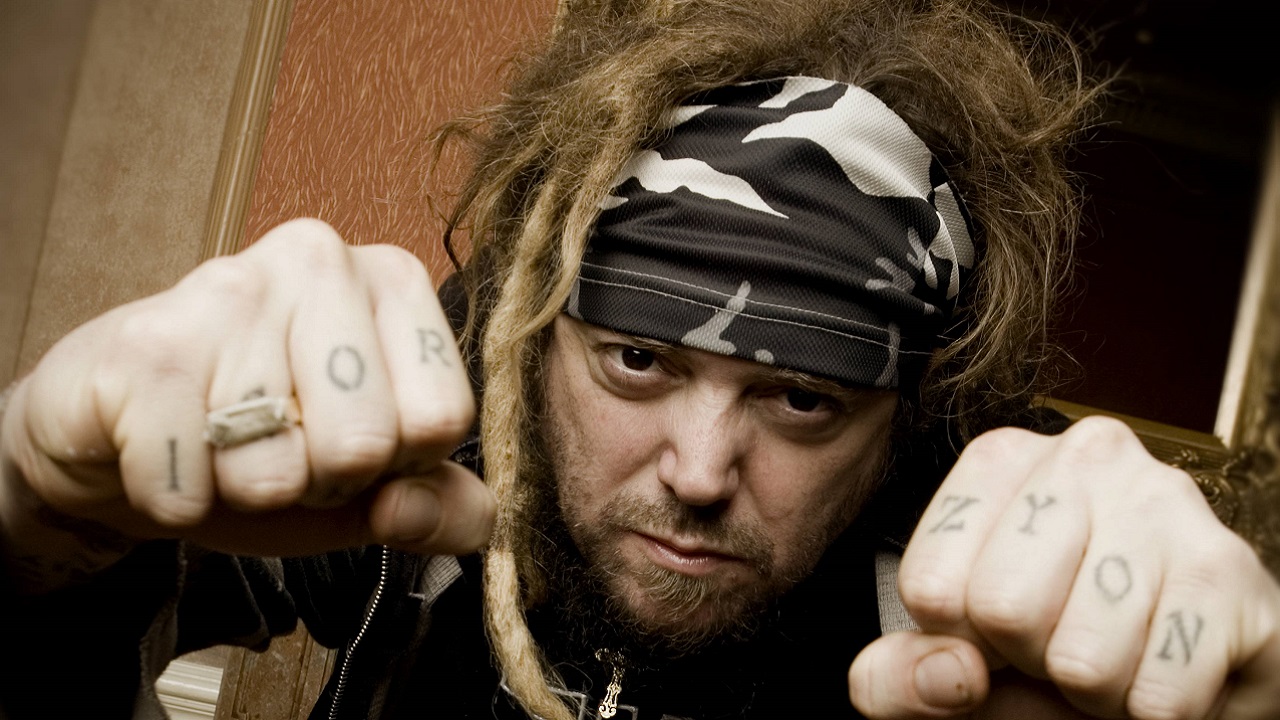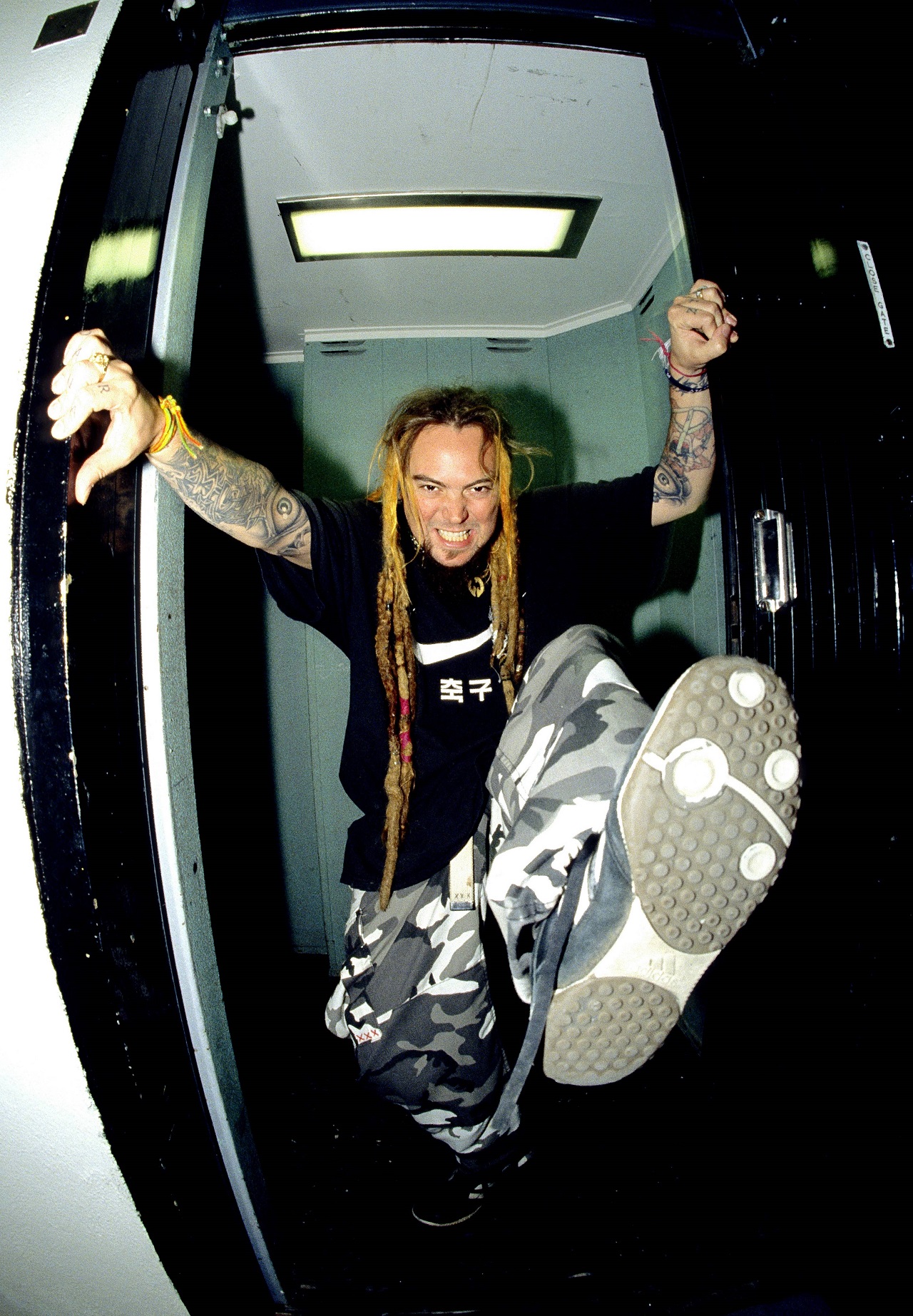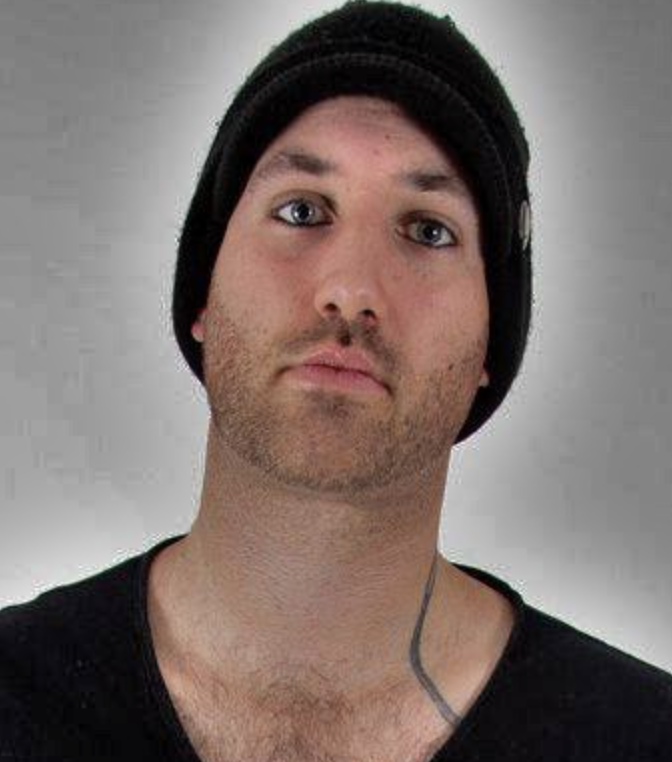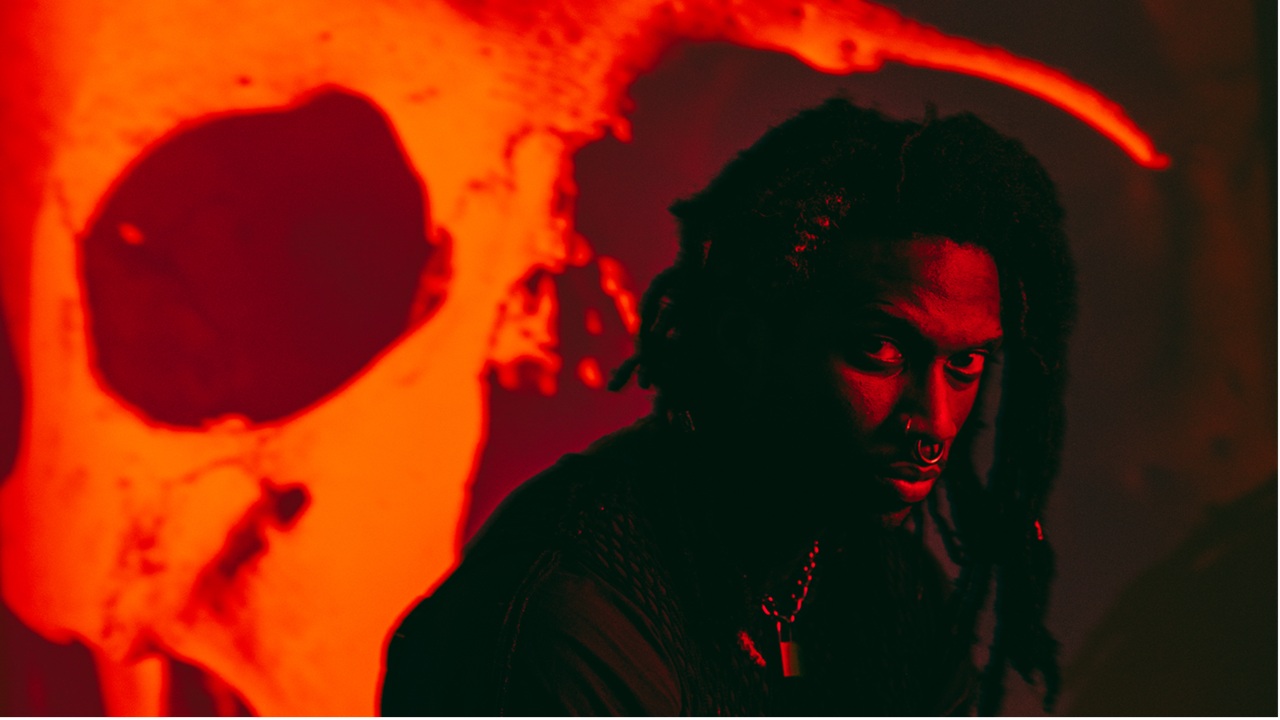The Story Behind Soulfly's nu metal anthem Jumpdaf***up: "We were the Wu-Tang Clan of metal"
Inspired by hip hop collaborations, Soulfly's Max Cavalera recruited Corey Taylor for the nu metal anthem Jumpdaf***up

Select the newsletters you’d like to receive. Then, add your email to sign up.
You are now subscribed
Your newsletter sign-up was successful
Want to add more newsletters?

Every Friday
Louder
Louder’s weekly newsletter is jam-packed with the team’s personal highlights from the last seven days, including features, breaking news, reviews and tons of juicy exclusives from the world of alternative music.

Every Friday
Classic Rock
The Classic Rock newsletter is an essential read for the discerning rock fan. Every week we bring you the news, reviews and the very best features and interviews from our extensive archive. Written by rock fans for rock fans.

Every Friday
Metal Hammer
For the last four decades Metal Hammer has been the world’s greatest metal magazine. Created by metalheads for metalheads, ‘Hammer takes you behind the scenes, closer to the action, and nearer to the bands that you love the most.

Every Friday
Prog
The Prog newsletter brings you the very best of Prog Magazine and our website, every Friday. We'll deliver you the very latest news from the Prog universe, informative features and archive material from Prog’s impressive vault.
When Max Cavalera abruptly left Sepultura – the band he’d formed in 1984 in Belo Horizonte, Brazil – during their 1996 Roots tour, it was one of the biggest scandals in metal. Sepultura had become global superstars and looked poised to stamp their own unique imprint on the burgeoning nu metal movement, but the singer walked out after a sold-out show at London’s Brixton Academy, much to their fans’ surprise.
To Max’s credit, he hadn’t even got off the plane home before he set plans in motion for Soulfly, and in 1998 his new band released one of the best debut records of the 90s with their self-titled effort.
Getting the thumbs-up from critics and fans alike, Soulfly proved that Max had something of a metal Midas touch. But if Soulfly represented a glorious comeback, then the pressure of following it up loomed large.
“You can’t keep doing the same thing,” Max tells us today. “You gotta find ways of making new records as exciting as they can be.”
After the success of Soulfly, Max sought out other ways to keep his band fresh. His solution this time was to scour the scene to find other big-name artists from metal and beyond to lend their voice alongside his. It was this search that led him to plucking an up-and-coming musician from the backwoods of Iowa and bringing him into the studio to write one of the most enduring songs of his career. This is the wild, magical story of Jumpdafuckup.
“Primitive is a strange album,” says Max of Soulfly’s second effort. “It’s an idea that was pretty much borrowed from hip hop. A lot of 90s hip hop had a lot of guests and I thought, ‘Why can’t we do that with metal? That would be cool!’ That was the main idea of Primitive, it was a fearless record. You have Sean Lennon and Tom Araya on the same record, Slayer and the Beatles! How do you even connect them? Then you have a heavy song like Jumpdafuckup.”

After settling on the decision to make their new album a jam-and-collaboration-heavy affair, Max roped in the aforementioned Slayer frontman and Beatles offspring alongside Deftones’ Chino Moreno, Will Haven’s Grady Avenell and, for the album’s definitive piece, Corey Taylor.
Sign up below to get the latest from Metal Hammer, plus exclusive special offers, direct to your inbox!
At that point, Corey was still a new (and as yet-unrevealed) face in the metal scene, Slipknot’s ground-breaking 1999 debut – and incendiary performances on that year’s Ozzfest – having only recently thrust his band into the spotlight. Max remembers his first exposure to Slipknot with fondness.
“A friend of mine, Joey, was good friends with Paul [Gray, late Slipknot bassist],” Max tells us. “He showed me Wait And Bleed, and I loved that first record, it was phenomenal. They were on tour and had a date in Phoenix, so Joey brought Paul to my house and Paul confessed that he was a member of the Sepultura fanclub, the Nomadic Warriors. He had the card with him in his wallet, pulled it out and showed me. That was fucking cool, man. It was a moment.”
Max decided to reach out to Corey to ask him to guest on a song on Primitive. Corey, a huge Sepultura and Soulfly fan, didn’t need any convincing. “Jumpdafuckup came out of nowhere,” Corey tells us. “Max’s people hit me up, like, ‘Do you wanna do a song with Max?’ Of course I do! What are you, fucking nuts?”
Corey was in, but little did he know that Max had been wrestling with the song while trying to get it right. “I struggled with that opening riff for about five hours in the studio,” laughs Max.
“I was getting mad at my guitar, flipping it off, calling it names. I kept fucking with it. It’s a simple riff but I wasn’t getting it, so I smashed the guitar to pieces. Really rock’n’roll! So, I went outside, cleared my head. When I came back in and grabbed another guitar, the first time I played the riff, it came out. It came from the sky, a light came down. It was incredible! That gave birth to the whole song.”
With the music finished, it was time to get Corey in to perform his part. It’s here, on a day that Max describes as a “saga”, that the story of Jumpdafuckup gets really outrageous.
“Corey was playing in Arizona the week we were in the studio,” Max recalls excitedly. “We already had the song, all the music was recorded, so me and my friend drove to the venue, and they’re just about to soundcheck and I shout, ‘Hey Corey, what’s up! We have to go to the studio and record!’ We pretty much kidnapped him! ‘Fuck your soundcheck!’ We put him in this piece-of-shit car in the desert.”
“I went down to the studio, and [producer] Toby Wright’s there, Max is there, it was almost kismet,” Corey says. “They basically gave me a blank cheque on the verses.”
“He went in blind,” hoots Max. “And he picked all the right spots! How crazy is that?! He wrote all those lyrics in the chair! That’s magic, man. That’s like witnessing insanity.”
With the song now fully written, the two icons of metal went into the vocal booth and created a landmark moment. “Corey loves the song and he’s going apeshit,” grins Max. “He’s killing it, too, those verses are amazing. I love that whole ending, it’s one of the hardest things ever. We were listening back, jumping, headbanging.”
“We got round the mic and sang it together,” Corey says. “Dude, it was one of the best experiences of my life! It was my first real taste of doing something with a peer… Well, not even a peer, but a hero! It was fucking Max Cavalera! I’d kind of blown my voice out singing in the studio and had barely anything left for the show, but it was one of the best days of my life.”
It’s a sentiment shared by Max, who left the studio and went back to the venue to watch Slipknot that evening. “An amazing day of recording, then I see Slipknot the same night,” he smiles at the memory.
“I’m headbanging, I’ve got my kids with me, my wife, they put me on this private balcony. If you’ve seen [1984 movie] Amadeus, you’ll remember that part where he goes to see his friend playing and he is on the balcony partying – I felt like that. I dunno, there’s a connection there somewhere. It was one of the best days of my life – such a metal day.”
Issues arose later however, when Soulfly wanted to include a picture of every collaborator in the liner notes of the album. At that point, Corey’s image was still very much under protection. “Back then, no one knew what Corey looked like because they were still just wearing the masks,” chuckles Max. “So we used a picture of Corey’s back – you can see the tattoo on his neck.”
Primitive was released on September 26, 2000, entering the US Billboard Top 200 at No.32, which remains Soulfly’s highest position. Much of its success was thanks to the crushing, careering grooves and furious tag-teaming vocals between Max and Corey on Jumpdafuckup. It probably didn’t hurt that there was a big dollop of melody in there as well.
“It’s Soulfly flirting with Tool a little bit,” Max says. “I think if you listen to the verses, especially Corey’s, there are very Tool basslines and percussion. I think it comes a little bit from that.”
At the turn of the millennium, Soulfly also toured with a bunch of heavy hitters: Rammstein, Pantera, Slayer, Morbid Angel, In Flames, and even Skunk Anansie. “It would never happen now!” Max laughs.
Over the last two decades, Soulfly have frequently changed styles, experimenting with death, thrash and groove metal. Last year’s Totem proves that Max is still finding new ways of making music exciting, emboldened by the success of that second Soulfly record.
Jumpdafuckup remains one of their definitive anthems and their most listened-to song on streaming services, with more than 31 million streams on Spotify alone. “I love that it’s one of our biggest-selling records,” Max tells us. “It was the idea, the jam idea… we were like the Wu-Tang Clan of metal.”
As for why Jumpdafuckup has continued to connect so many years after its birth, Max believes the story behind the creation of the song has given it a sort of magic that can still be heard all these years later.
“That’s maybe why it’s one of our biggest songs,” he muses. “All this stuff went into the making of the song, it’s like a whole soap opera. That’s what life is about – experience as much as you can. I love that I could be part of all these different scenes. It made me a better person.”

Stephen joined the Louder team as a co-host of the Metal Hammer Podcast in late 2011, eventually becoming a regular contributor to the magazine. He has since written hundreds of articles for Metal Hammer, Classic Rock and Louder, specialising in punk, hardcore and 90s metal. He also presents the Trve. Cvlt. Pop! podcast with Gaz Jones and makes regular appearances on the Bangers And Most podcast.
